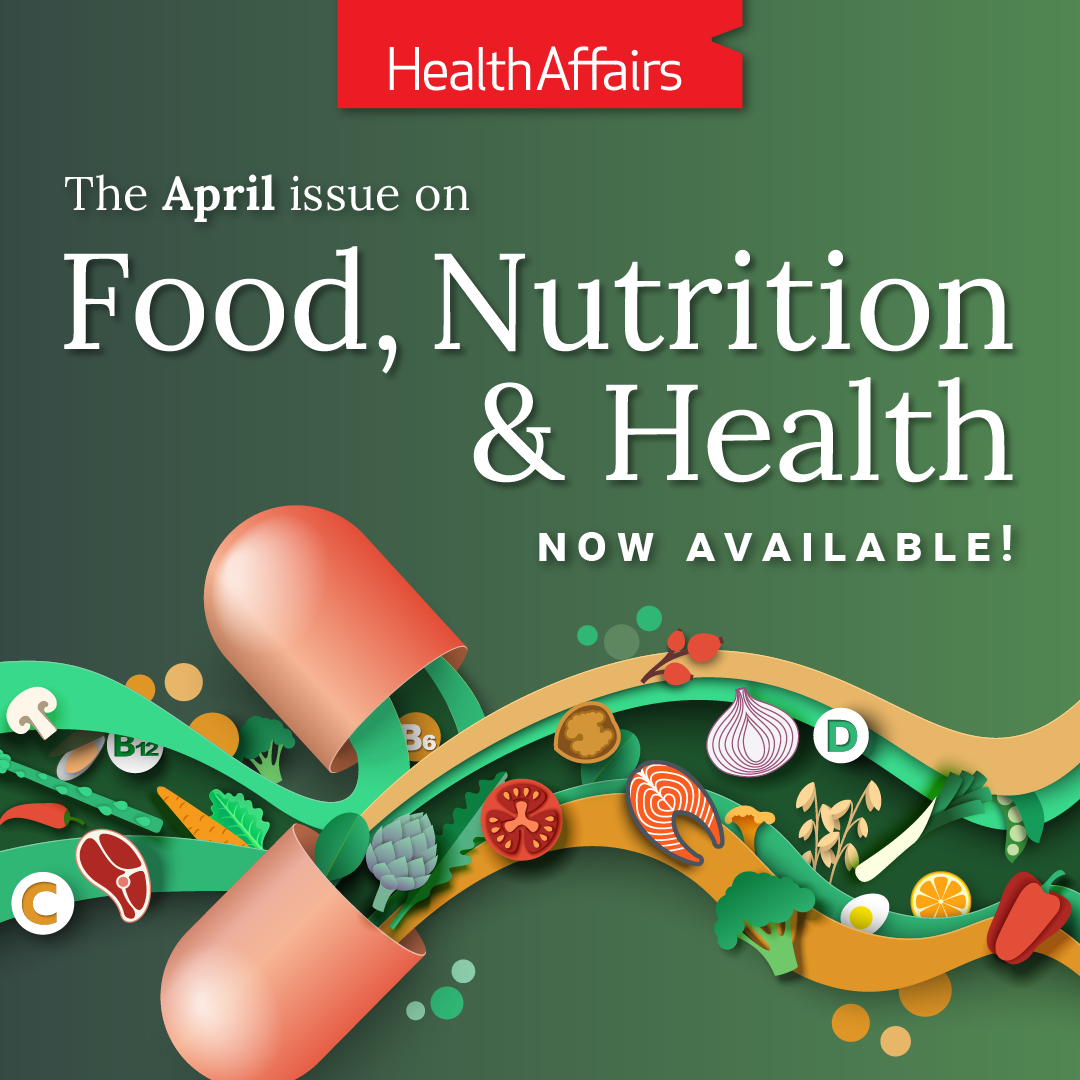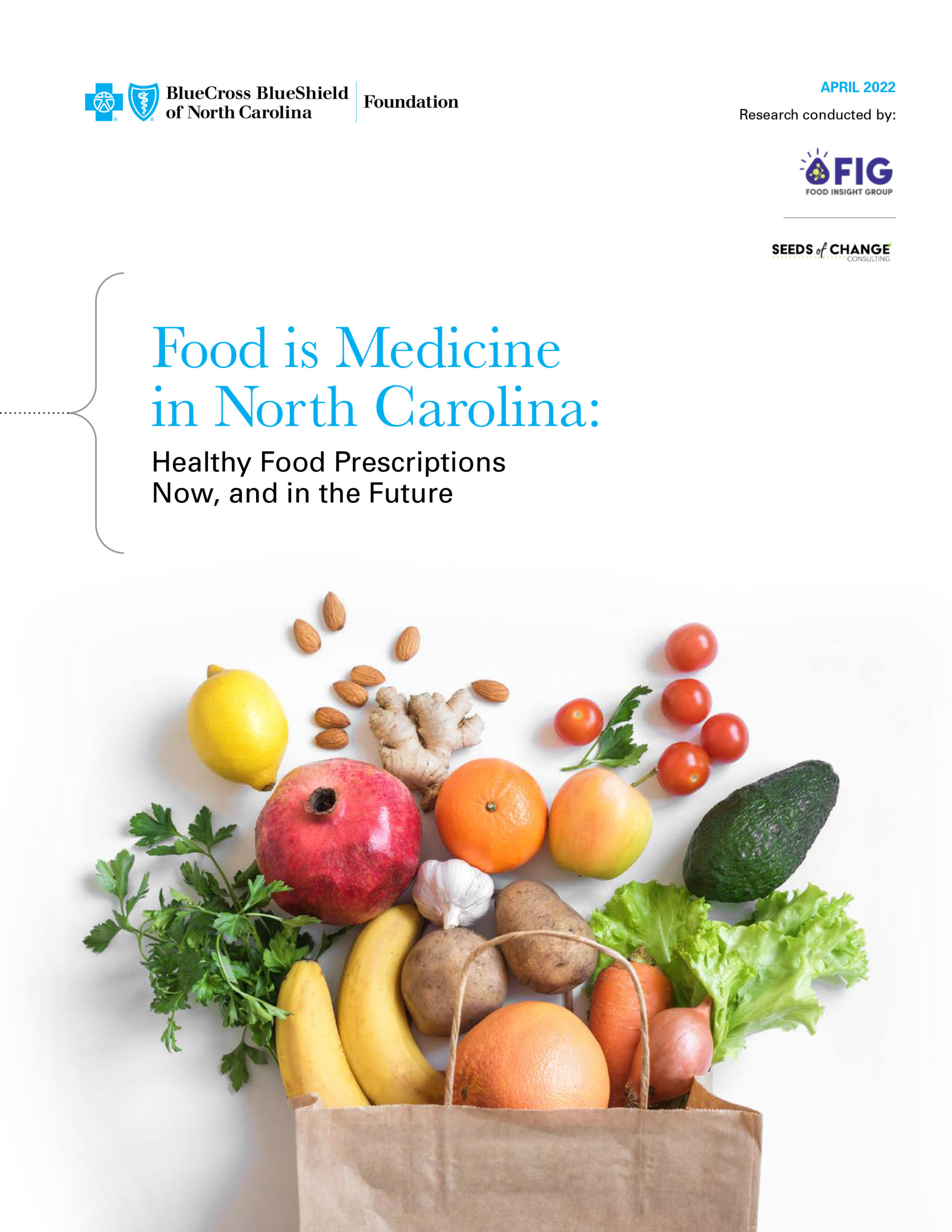Food is Medicine
North Carolina is fertile ground for an approach that bolsters health care’s role in addressing food security and opens doors to healthy food, all while leveraging the expertise and leadership of two of the state’s great resources - its people and the work of our community-based organizations.
This promising approach to Food is Medicine features partnerships between community-based organizations and the health care sector that leverage the inextricable links between food, nutrition, and health. In these programs, health care providers assess patients for diet-related conditions and/or food insecurity and then prescribe a food-based intervention delivered by local organizations with long-standing ties within their community.
Blue Cross NC Foundation has invested more than $6 million to support, and learn from, 10 community-based Food is Medicine programs throughout North Carolina. They range from small operations serving historically under-resourced neighborhoods to the largest produce prescription program in the country, whose footprint spans the entire state.
These programs leverage, and marry, the expertise and trust of health care providers with the capabilities and wrap-around services of community organizations to serve the unique needs of residents. In many instances, they also integrate locally sourced food, supporting local farmers and growers as well as stimulating local economies.
Like many medications, Food is Medicine programs are not a cure all. However, they are many great things, including most significantly a pathway to food security, nutrition, and health. And community-based approaches can be so much more. They are community driven and customized rather than a one size fits all approach. In an era of deepening focus on value-based care and non-medical drivers of health, growing community-based Food is Medicine could not be timelier, both in North Carolina and throughout the country. With them, the health care sector and others have an emerging opportunity.
Hear what some of these community-based organizations have to say about the work they do.

A Scan of Partnerships Between Community-Based Organizations and Healthcare Providers in North Carolina
North Carolina is a leader in the Food is Medicine (FiM) movement, integrating nutrition into healthcare through community-based initiatives to improve health and reduce costs, especially for at-risk populations. Success relies on collaboration between healthcare organizations, which provide medical oversight, and community-based organizations, which focus on food access and education. The Blue Cross NC Foundation has funded FiM programs to support their growth and impact, and initiated a multi-year exploration to better understand effective partnerships and delivery challenges

Food for Thought: A Vision For Generative 'Food Is Medicine'
North Carolina has a wealth of Food is Medicine programs that are addressing food insecurity and diet-related conditions for people across our state. The backbone and heart of many of these efforts are nonprofit community-based organizations along with small and mid-sized farms. In the April 2025 issue of Health Affairs - which is focused on food, nutrition, and health - Blue Cross NC Foundation staff bring this to light and call for a generative Food is Medicine approach that values and supports local, community-based interventions to maximize their impact.

Statewide Healthy Food Prescription Scan
In 2022, Blue Cross NC Foundation supported Food Insight Group and Seeds of Change to conduct research of Healthy Food Prescription programs in North Carolina in order to identify active programs, outline the diversity of operational approaches, and report on elements needed to grow the Healthy Food Prescription movement. Through surveys and focus groups of community-based organizations health care practitioners, and other key informants working in and around these programs, they identified and profiled diverse, innovative approaches taking place across North Carolina and outlined the barriers and opportunities to their further development.
